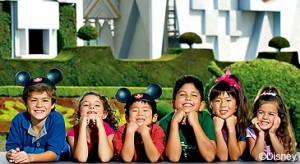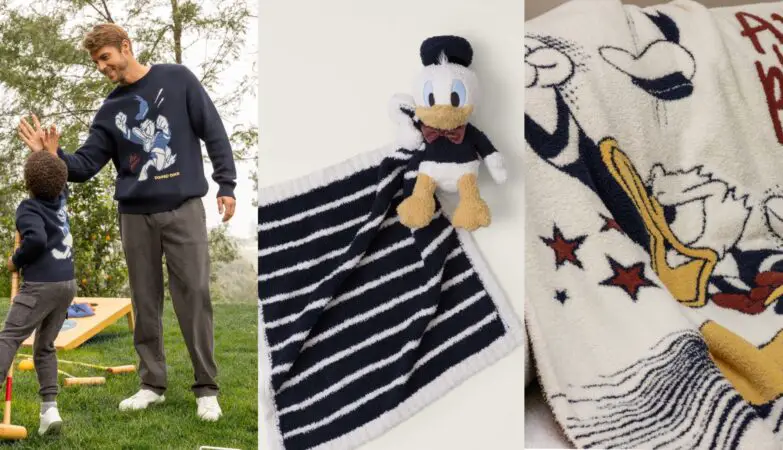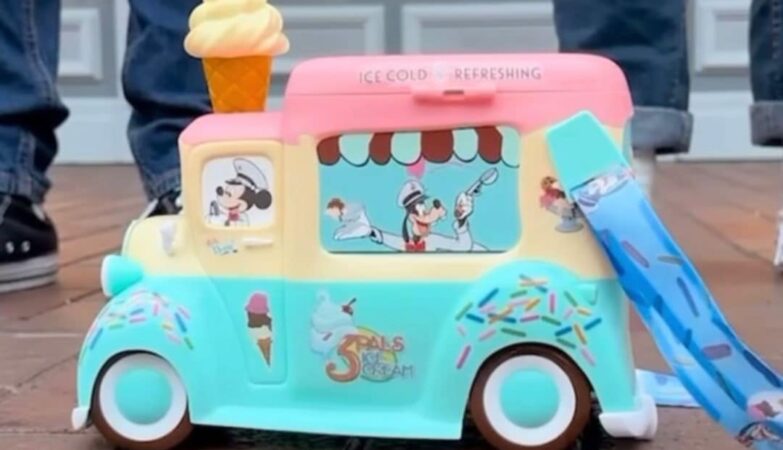
Families with special needs children may find the idea of traveling daunting. Vacation planning should be a fun time and something to look forward to, not fear or dread.
As a travel agent, I have been blessed to find families with special needs very open about their unique situation and the dynamic elements required to make a dream vacation.
No amount of reading and researching could ever give me the knowledge even close to what the family knows and lives with every day. It’s a task I don’t even attempt to undertake. I’ve found the best way to plan a vacation for children with special needs is to prepare the parents. No one knows a child better than his parent, and knowledge is power. Combining Disney parks knowledge with parental knowledge and you’ve got the answer to virtually any potential vacation problem.
Parents are often very anxious at the prospect of bringing children with sensory issues to a place like Walt Disney World. It can be crowded, noisy and it’s certainly overstimulating, these things seem like a formula for disaster, but rest assured your vacation can be just as magical as you imagine, you just have to do a little prep work.
Individually, special needs can vary quite broadly and it would be impossible to address each one of them. ADHD (Attention Deficit Hyperactivity Disorder) and ASD (Autism Spectrum Disorders) are broad disorders that can have the following effects: impulsiveness, hyperactivity, inattention, ultra-sensitivity to noises, lights, smells and objects. ASD can also include: impairments in thinking, feeling, language and social interactions repetitive movements, abnormal reactions to sound, touch and extreme emotional responses.
Regardless of what your family needs are every family will experience certain standard things on vacation: eat, sleep and play. So let’s combine what we know about special needs and standard vacation elements.
Eat: You have to eat and if you are in the parks you are most likely eating in the parks, which could raise a whole new set of challenges.
Make Advanced Dining Reservations at “off” dining times. Even with a reservation you could still have to wait for your table to become available, eating at an “off” time will be less crowded and will be less sensory overload. You’re also more likely to be seated quickly.
Pick your place-When you make your dining reservations make notes of your special needs, if your child has issues with being touched, request a booth (if available) you are less likely to be bumped or touched by strangers. If sitting with strangers is a problem for your child, be cautious of places like Biergarten in Epcot, The Spirit of Aloha show, or Hoop-Dee-Doo Review, if you are interested in these experiences ask the dining reservation-ist if you can have a separate table. Disney does try to accommodate special requests, of course nothing is guaranteed; but explaining there is a medical issue will help.
Sleep: Being on property could be the best decision you could make. Consider your resort wisely, if you prefer quieter calmer environments consider a moderate or deluxe resort in a room that’s in a more secluded location (not facing the pool, etc). These rooms are more likely to be affordable, available and apt to fit your special needs. View pictures of your choice resort online, familiarize your child with what the rooms will look like, etc.
Consider your transportation options when choosing your resort. If your child won’t be able to handle a bus ride consider a deluxe resort on the monorail system or with water access.
Play: This could be the most difficult vacation element because the variables are endless. There are a few preparations you can make to prepare for your park time. For children with ASD and ADHD structure is very important.
Although you are on vacation and might not want to stick to a stringent schedule set a pattern of park touring that works for you follow it daily, regardless of what park you are in. For example, set breakfast for the same time each morning, try to accomplish a certain amount of rides before your mid-morning break, and a certain amount after, set lunch at the same time each day, etc and decide what you’re going to do after dinner. Although the daily experiences will change your pattern will be the same.
Before you start touring the park, stop in guest services and get a Guest Assistance Card. This card will be issued to someone in the party and is valid for 5 people in the party (for example, a single family would most likely only need 1 pass if everyone is touring the parks together). Explain to the cast member at guest services you’d like a GAC, and what your special need is (an alternate entrance, a quiet place to wait for your turn on the ride, etc.) and they will accommodate you. It’s not necessary to parade your child into guest services and put on a display of what you need and why. One member of the family can obtain the card and you simply show the pass at the attraction and the cast member will give you instructions from there.
Give your children maps of the parks and let them get familiar with them. Some children find that knowing where they are going is empowering and they’re less likely to have a meltdown. Order the planning DVD and watch it, as many times as it takes to work out the kinks and questions that your child might have about your vacation.
Share your plans if you think your child can handle it (we’re going to have breakfast then try to do rides in Fantasyland, then after lunch we’re going to try to rides in Frontierland, etc.). This will give more structure and having a set pattern may help keep the stimulation under control and ease anxiety.
Your vacation should be a magical experience from start to finish, including planning. If you find the process overwhelming or would like assistance, find a reputable travel agent that specializes in Disney travel, like Pixie Vacations. An experienced agent will be able to assist you with reservations, touring plans, itineraries, and take the planning and preparation pressure off of you. Have fun at the happiest place on earth!
For more detailed information, try Passporters “Open Mouse”. These are just a few of the issues and tips for the ADHD/ASD spectrum, we’d love to hear your tips and tricks!
Related articles
- Save 17%-30% off your Disney Resort! (chipandco.com)
- Disney World Summer Discounts (chipandco.com)


Let our friends at Destinations to Travel help you book your next Disney Vacation. They are the preferred Travel Agency of Chip and Company and Disney Addicts, and who we use ourselves.
Get started below for your FREE No Obligation Quote.
Book With our friends at Destinations to Travel
For the BEST in Disney, Universal, Dollywood, and SeaWorld Theme Park News, Entertainment, Merchandise & More follow us on, Facebook, Instagram, and Youtube. Don't forget to check out the Chip and Company Radio Network too!








Great to know that Disney is accommodating disabilities of all kinds.
I agree Laurie, knowing what you are getting into can really help. I’m so glad that the Disney website has menus up for all of their restaurants and the photos on the websites and other information out there can give you an idea of what you’re getting into. Don’t forget you can always call the dining line (407) WDW-DINE (instead of making reservations online) and ask the cast member any specific questions you may have about a restaurant, regarding noise, atmosphere, etc. If they aren’t informed enough for your liking, a Disney travel agent should be. Thank you for the feedback, I love hearing that families are having a great time in Disney parks and getting first hand information and advice from families that deal with these issues helps me prepare other families with similar issues who are about to experience the parks for the first time!
We have a child with A.D.D & Reactive Attachment Disorder, a child with Separation Anxiety & twins that are mentally delayed & autistic. This can make for very long days at home, but while traveling can be overwhelming. We’ve found that making trips to Disneyland is possible, by showing the movies, listening to the music & watching ride, parade & firework videos to help prepare them ahead of time. The most important thing we do to help the kids do well while away from home, is KEEP TO THE SCHEDULE……I can’t stress how much this can make a difference. We know the twins need to nap after lunch & we leave the park after lunch to make sure they get that all important down time. We also keep the bedtime ritual, which means missing out on the evening entertainment on most nights. We will usually pick 2 nights to stay later to catch a show or fireworks. The other thing we do is go for 6 days. With being at the motel in the afternoons & early evenings….this allows us to still get quality park time & not feel rushed.
It can be done & the more you know about the place you’re going, the better. Knowing where you can get away from the noise or heat helps before there are meltdowns. Getting the Guest Assistance Card that is tailored to your child’s needs can also be very helpful. Knowing which restaurants that won’t over stimulate by sounds, decoration, music, etc will also help make meals more pleasurable.
Being prepared & flexible can help your trip be *+*+*Magical*+*+*!!
We bought a set of kid-sized noise-blocking headphones for my (now 8yo) son – ABSOLUTELY changed his Disney experience! He used to bury his head in my shoulder on Big Thunder Mountain, even with earplugs (foam or the “gummy” ones). With the headphones, we ride over & over while he laughs & squeals with delight! He also wears them for the Rockin’ Roller Coaster, Lights, Motors, Action!, the fireworks shows, & in several other areas. You can order them from Amazon – they’re only about $15 & are worth every penny when you have a sound-sensitive child.
This is all great advice…I think it also works well for those hitting the parks for the first time who aren’t good with crowds or loud noises. We have relatives who live in rural western PA on a farm, and their first trip to Disney was a total shock – they just hated the rush/crush of people!
My son is High Functioning so he is not real bad off. But he LOVES WDW.
If your child has problems with loud noises, take ear plugs for them
If your child has problems with loud noises, take ear plugs for them
Does Disney have buttons for special needs kids can wear? When cast members talk to him and he doesnt talk back I have to tell them he is autistic. I dont want them to think he is rude.
He is also a picky eater. I asked if he can eat off the kids menu and they said since we are on the dining plan that it would not be a problem
My son also has social problems. Cast members stop and talk to him but a lot of times he won’t talk back.
My son is sensitive to loud noises. But he still loves WDW. This year will be his 9th trip to WDW
My 11 yr ols son is ASD and ADHD
Thanks again! 🙂
I’m gonna send them this link.
I think this information could really help them feel more comfortable.
Our friends have a child w/ ASD and they’ve been considering a Disney trip.
Great post!
Great post!
Great post!